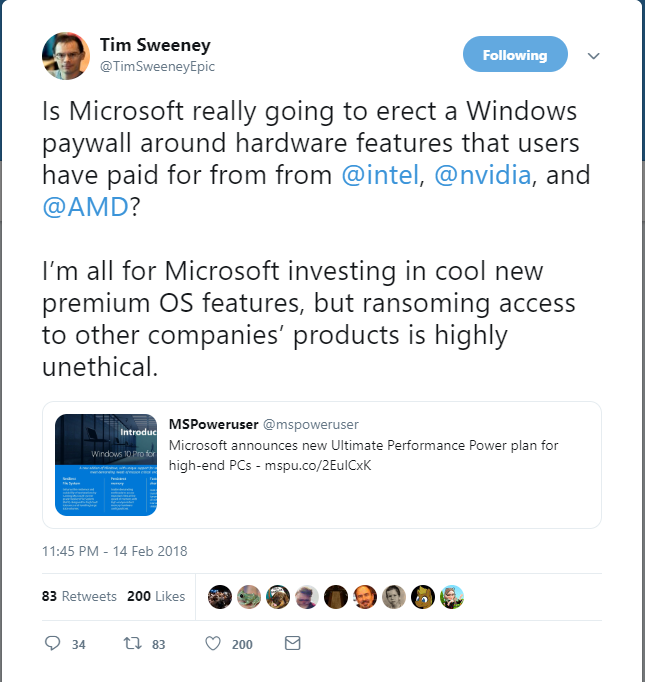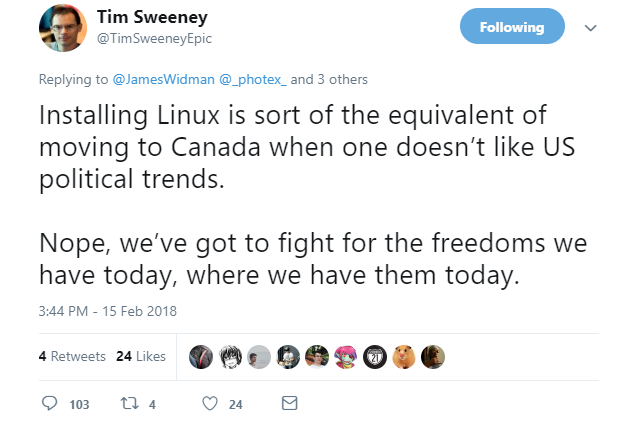Absolutely not. Full stop.
You may have owned a media (floppies, CD/DVD) but unless you are a rightsholder, you have n ever owned any software in your life. You have owned a license that allows you to legally use it.
Allow me to be more specific then:Again, you've never had ownership of any game you've bought. Just a license. That license has only ever conferred a right to use the software, no ownership rights what so ever. I don't care if the game came on a floppy or on a CD, this has always been the case.
Yes, I was not trying to imply buyers owned the intellectual property rights of the software. But they do OWN the perpetual software license. The seller isn't allowed to remove the ownership of that license after the point of sale. I own my single-instance COPY of the software license as a GOOD. I am legally entitled to resell it, modify it, etc. The seller does not retain ownership over my individual license after sale, that's the whole reason they're SELLING it.
Another way to look at it: If I buy a truck, I don't own the manufacturing or design rights to a Ford F150. I can't start manufacturing copies, selling copies, etc., I have none of those rights. But I DO own my individual truck, which I can modify, sell, drive, etc.
Now with old games, the comparison with goods is 1:1 and this was rarely, if ever, an unclear thing. Sure, DRM existed before Steam, but your ownership rights generally weren't infringed upon with the DRM. Steam largely ushered in the movement where your rights were effectively infringed upon. Sure, you may have "bought" your copy, but if they remove all access to it, you've effectively lost it. They established that standard. I suspect this could run afoul of the law, but it hasn't been tested in courts to the best of my knowledge.
It seems like you are just from logical conclusion:Who is defending Steam?
Certainly not me.. I have time and time again (even in this thread I believe) been on the record stating that Steam has problems of its own.
So it sounds like you're against all storefronts except GOG or Steam. That's not a defense of it? Especially when you say the following:If a title is not on either Steam or GoG it won't be getting my money.
Well under that logic, wouldn't the fact that you use Steam ALSO put you in the "pathetically weak-willed' camp that doesn't put up a fight? Either I'm missing something or your logic doesn't hold up:honestly I am disappointed in all those who are so pathetically weak-willed that they don't even put up an assemblamce of a fight and allow the anti-consumer assholes to win.
1. You say you don't defend Steam because it also has anti-consumer practices.
2. You say people who don't put up a fight towards anti-consumer decisions are pathetic and weak-willed.
3. You use Steam, meaning you're not putting up a fight towards it.
4. Therefore, you are also pathetic and weak-willed, by your own definition (your words, not mine).
Which part of my logic steps am I getting wrong?
For what it's worth, I would also put MYSELF in that category the way you define it, since I use Steam as well. The difference is, I don't see much of a distinction between what Steam has done v. what Epic has done, on the contrary, I see the standard that Steam ushered in as far more consumer-hostile than what Epic has introduced.
Last edited:
![[H]ard|Forum](/styles/hardforum/xenforo/logo_dark.png)


